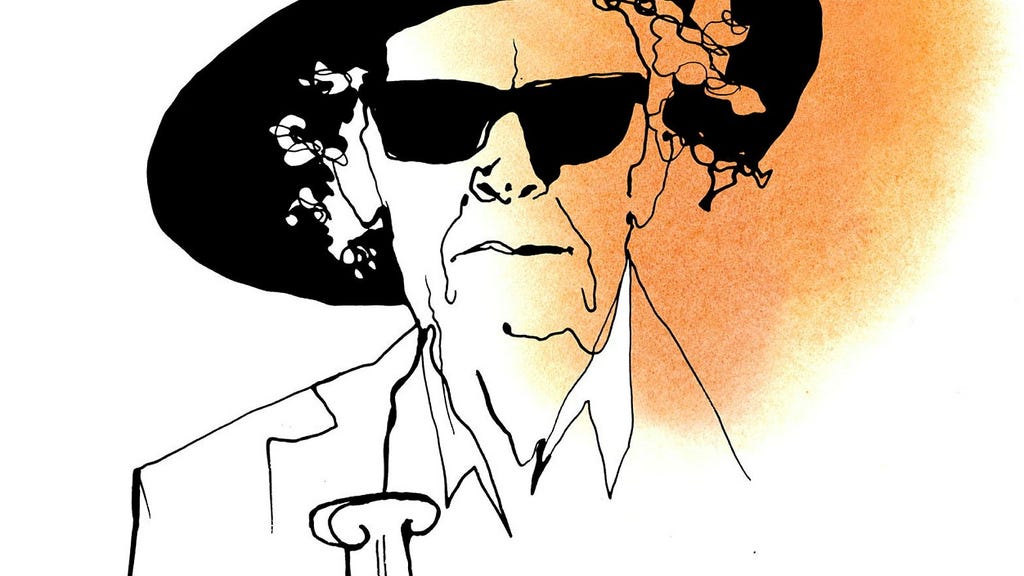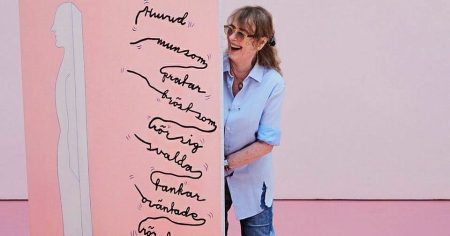Bruno K. Öijer: A Poet Unbound by Norms and Embraced by the People
Bruno K. Öijer, the 73-year-old poet, stands as a figure of unyielding authenticity, defying conventional norms and societal expectations with an indifference born not of arrogance, but of a profound focus on his artistic pursuits. His disregard for fashion rules, exemplified by his simultaneous wearing of sunglasses and a hat – a faux pas for most, yet a statement for a rock star or a poet like Öijer – is merely a superficial manifestation of a deeper principle: a refusal to be swayed by external pressures. This inherent independence, he believes, has been with him since childhood, an ingrained part of his being that allows him to channel his energy into his creative endeavors rather than on seeking approval or conforming to expectations. This unyielding dedication to his craft has culminated in the prestigious DN Kulturpris award, a recognition not just of his latest poetry collection, "Växla ringar med mörkret" (Exchange Rings with the Darkness), but also of his powerful and impactful poetry readings, which resonate deeply with audiences across Sweden.
Öijer’s poetry, described by DN’s cultural editor Björn Wiman as potentially "life-saving," reaches beyond the intellectual sphere and touches the core of human experience. His recent sold-out tour across Sweden testifies to the enduring power of literature and its ability to connect with people from all walks of life. This connection, according to Wiman, highlights the vital role of art as a form of profound, engaging and enriching education, especially for younger generations seeking meaning and connection in a complex world. Öijer’s work provides solace, understanding, and a sense of shared humanity in an increasingly chaotic and uncertain world. While acknowledging the inherent limitations of awards in judging art, Öijer expressed gratitude for the recognition, accepting it not as a competitive triumph but as an affirmation of the value of art in a society often preoccupied with superficial entertainment. He sees the award as a shared honor, recognizing the contributions of all the nominees – actress Asta Kamma August, artist Gunnel Wåhlstrand, playwright Andreas Boonstra, and musician Goran Kajfeš – and highlighting the importance of diverse artistic expressions as vital counterpoints to the often hollow offerings of a consumer-driven culture.
Öijer’s acceptance of the DN Kulturpris, however, comes with a caveat that further underscores his commitment to authenticity. Known for fiercely guarding his privacy, he refused to be photographed with the award statuette, a gesture reflecting his disdain for the performative nature of public accolades. He sees such displays as disingenuous and prefers to let his work speak for itself. This unwavering commitment to integrity, coupled with his prolific output spanning five decades and numerous poetry collections, has solidified his position as a significant voice in Swedish literature. His poems, deeply personal yet universally relatable, explore the intricate tapestry of human existence, delving into the complexities of love, loss, memory, and the profound impact of the world around us.
Öijer’s work is characterized by its introspective exploration of the human condition, reflecting on the profound questions of existence and how individuals are shaped by love, sorrow, and memories. He simultaneously casts a critical eye on the external world, observing the often bleak realities of contemporary society with a clear-eyed perspective. However, instead of succumbing to despair, Öijer sees the darkness as a catalyst for seeking and embracing light, finding inspiration and meaning in art and literature. He stresses the importance of seeking out experiences that enrich and inspire, fostering a sense of purpose and value in life, even amidst challenging circumstances. This philosophy underscores his belief in the inherent resilience of the human spirit and the power of art to uplift and transform.
His latest collection, "Växla ringar med mörkret," marking his return to publishing after a decade, comprises autobiographical poems stripped bare of any superfluity. Öijer prides himself on the precision and economy of his language, striving to convey complex themes with a simplicity that belies the depth of his insights. Nature, a recurring motif in his work, serves as a constant source of inspiration and solace. Images of birds, trees, his deceased dog Snötass, and the ever-present forest permeate his poetry, reflecting a deep connection to the natural world. This connection is not merely aesthetic; it’s a vital part of his being, offering respite from the relentless demands of modern life and providing a space for introspection and renewal. He sees the ability to immerse oneself in the tranquility and beauty of nature as essential for maintaining a sense of balance and well-being.
Öijer resists easy categorization, preferring to define himself simply as "a human. With a soul." This seemingly simple statement encapsulates the essence of his artistic philosophy, a profound belief in the shared humanity that connects us all. He rejects labels and preconceived notions, choosing instead to engage with the world on his own terms, guided by his inner compass and unwavering commitment to artistic truth. This authenticity resonates with his loyal audience, fostering a reciprocal relationship of appreciation and understanding. He sees his connection with his audience as a "love affair," a mutual embrace that fuels his performances and allows him to share his unique vision with the world. His upcoming tour in Norrland promises to be another opportunity for this connection to flourish, further solidifying his place as a poet of the people, speaking to their hearts and minds with a voice both timeless and profoundly relevant.














